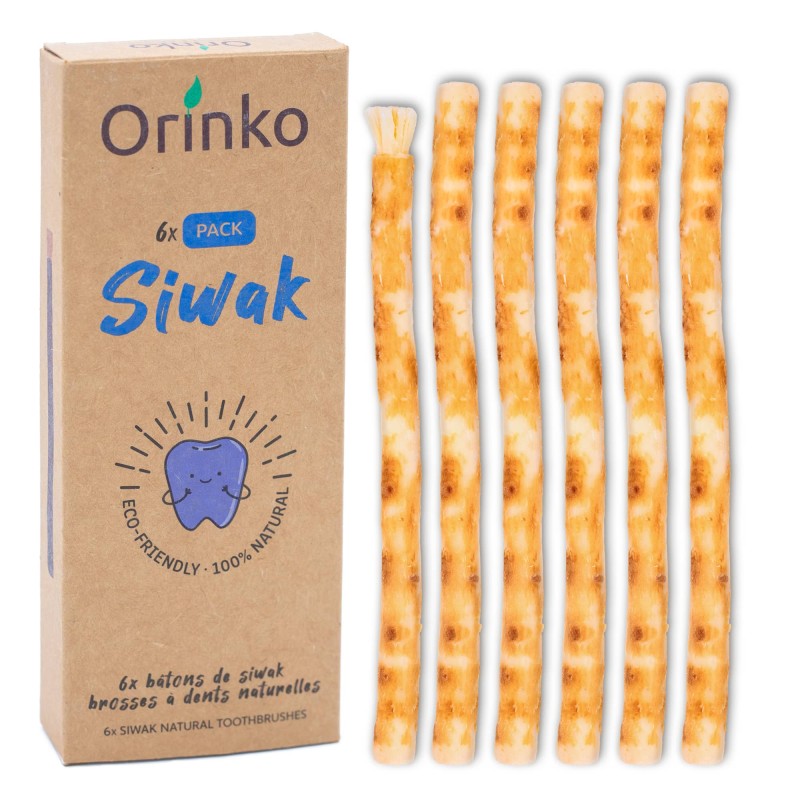




Made from 100% natural roots, these zero-waste siwak sticks are ideal for brushing teeth. Replacing toothbrushes and toothpaste, they clean, disinfect, and whiten teeth while freshening breath and strengthening gums. Use two to three times a day.
Siwak sticks are part of our zero-waste hygiene product range. We offer natural solutions for both your personal and oral hygiene.
Why buy siwak sticks?
Siwak sticks are a 100% natural product made from the root of the Salvadora persica shrub. As this shrub is abundant in the Middle East, Asia, and Africa, its exploitation poses no risk of deforestation. Our siwak, produced in Pakistan, is ecological, organic, vegan, and compostable and can replace toothbrushes and toothpaste. Since it produces no waste, it is completely environmentally friendly.
Siwak is used in some powder or paste toothpastes, but it is best used in stick form. The mechanical action against the teeth helps to remove dental plaque more effectively.
Characteristics
100% natural
approximately 16 cm long
between 0.5 and 1 cm in diameter
scientifically proven effectiveness of siwak
simple and practical to use
Why use siwak sticks?
Siwak sticks are made from a 100% natural root and can be used two to three times a day very simply, instead of a toothbrush and toothpaste. The natural agents in siwak sticks clean and disinfect teeth, tongue, and gums without harming them. They eliminate germs, bacteria, and bad breath, and strengthen the gums.
Since they contain fluoride and vitamin C, siwak sticks prevent cavities, promote healing, and relieve gum inflammation. The alkaloids in siwak also help reduce tooth stains caused by tea, coffee, wine, or tobacco, and whiten teeth.
How effective are siwak sticks?
The use of siwak sticks as an oral care product dates back 7,000 years, and numerous studies have demonstrated their effectiveness. Since 1986, the World Health Organization itself has recognized their benefits.
You might also like
Your review appreciation cannot be sent
Report comment
Report sent
Your report cannot be sent
Write your review
Review sent
Your review cannot be sent

Made from 100% natural roots, these zero-waste siwak sticks are ideal for brushing teeth. Replacing toothbrushes and toothpaste, they clean, disinfect, and whiten teeth while freshening breath and strengthening gums. Use two to three times a day.


